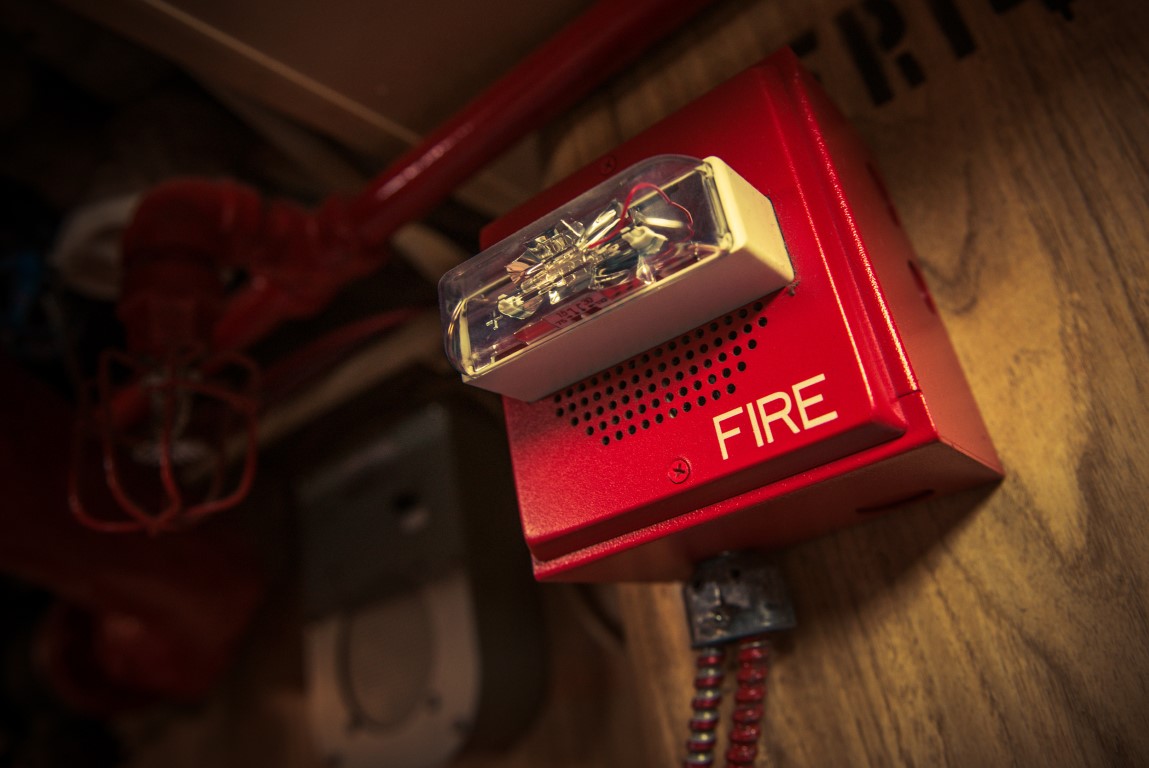Fire breakouts are more common than we think. According to the National Fire Protection Association (NPFA) data, the local fire departments in the United States respond to a fire emergency every 21 seconds. In fact, in the year 2022 alone, these departments responded to around 1.5 million fires that led to an estimated $18 billion of property damage.
More than 25% of these were residential fires that were caused by the sheer negligence of homeowners. To mitigate the risk of fire and ensure the safety of your loved ones, it is important to practice fire safety measures at home. Following the three P’s — prevent, prepare, and protect — is a good way to start. After all, nobody wants it to happen, that’s why, it is important to be prepared, just in case.
In this blog, we’ll share some effective ways to protect your home from fire damage.
1. Install Smoke Detectors and Fire Alarms
Smoke detectors and fire alarms are your first line of defense against fire emergencies. These systems provide a clear warning in the event of a fire and give you a chance to reach out to a safe location, so installing them at home is a must. But remember, only working alarms save lives. So, make sure to
- test smoke detectors and fire alarms every month.
- change their batteries at least once a year.
- keep your alarms dust-free.
- replace them every 10 years, or earlier if required.
Also, if you live in a multistorey house or an apartment, it is important to install smoke detectors and fire alarms on all levels for optimum protection.
2. Invest in an Efficient Fire Sprinkler System
If fire alarms and detectors are the first line of defense against fire, fire suppression sprinkler systems are undoubtedly the second. These advanced and intelligent systems automatically detect and suppress fires by releasing water from their sprinkler heads, helping you to swiftly suppress fires and minimize damage to your property. Today, residential fire sprinkler system designs are created using advanced software and technologies and are fitted with advanced water delivery systems that adapt to different fire scenarios and sprinkle the right amount of water as per the intensity of the fire. Some points to keep in mind include:
- Get a fire sprinkler systems design from a reputed service provider.
- Ensure a once-a-month inspection of the fire sprinkler system.
- Ensure there is sufficient water in the tank at all times.
- Do not block the sprinkler head or expose pipes to freezing temperatures.
- Test the water flow device twice a year.
3. Practice Safe Cooking
Cooking is the number one cause of most home fires. That’s why, it is important to practice safe cooking practices:
- Never leave a burner unattended
- Turn off appliances when not in use
- Keep flammable objects away from heat sources
- Use a timer to remind you of cooking times
- Keep children and pets away from the cooking area
- Regularly clean cooking surfaces to prevent grease buildup
4. Maintain Electrical Appliances and Electrical Wiring
Secure your sockets and cables and make sure they are not overloaded. Electric short-circuiting is another common cause of house fires. Other than this, regularly maintain your electric appliances and keep them unplugged when not in use.
5. Store Flammable Materials Properly
Conventional flammable materials like nail polish, hair polish, alcohol, etc., are commonly found in almost all homes. Make sure to store them properly, in the containers intended for them, always away from the reach of children. Little preparedness will help you prevent a lot of unwanted problems.
6. Keep Fire Extinguishers Handy
Having a fire extinguisher at home is another easy way to extinguish fire quickly. They are easily available at local hardware shops and can be kept at the entrance of your kitchen or any other place where there are chances of fire breakout.
7. Create a Fool-Proof Fire Escape Plan
Make a comprehensive fire escape plan that you can use during fire emergency.
- Practice the fire safety drill with your family at least twice a year and make your children know how to follow it.
- Mark the exit doors and decide the meeting place outside the house to ensure everyone’s safety.
- Practice the ‘stop, drop, cover, roll’ drill in case clothes catch fire.
- Perform the ‘crawl down low and go, go, go’ drill to ensure a safe escape from smoke and poisonous gases.
8. Invest in Fire-Resistant Materials
Consider buying fire-resistant materials for your home. Invest in fire-rated doors, replace regular curtains with fire-retardant curtains, and normal upholstery with flame-resistant upholstery.
Fire-resistant materials slow down the spread of fire and provide valuable time for evacuation.
9. Clean Chimneys Frequently
Ensure regular chimney maintenance. It is essential to prevent the buildup of flammable creosote, a leading cause of chimney fires. Hire a professional chimney sweep to clean your chimney at least once a year.
10. Reduce Clutter and Bio-Waste from Your Home
Over time, our houses turn out into storehouses of waste materials. Unwanted stuff keeps piling up, increasing the chances of fire breakouts. For safety, it is best to spring clean your home at least twice a year. Remove all unwanted stuff from your house at regular intervals and dispose of bio-waste appropriately.
By following these steps, you can easily fireproof your home and reduce the risk that fire poses to lives, property, and assets. Remember, fire safety is a shared responsibility, and being proactive can make all the difference in an emergency.
Discover more from Futurist Architecture
Subscribe to get the latest posts sent to your email.



